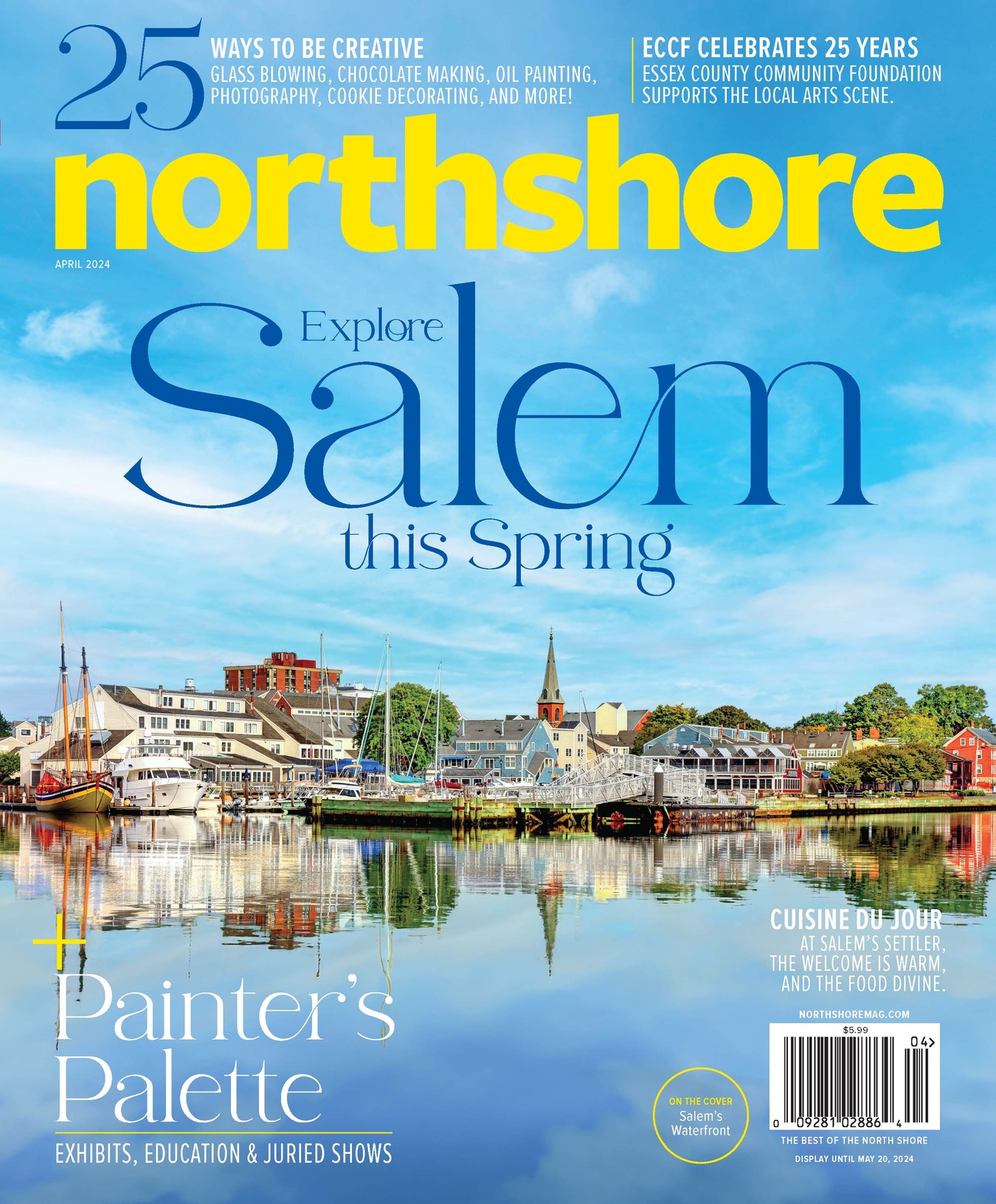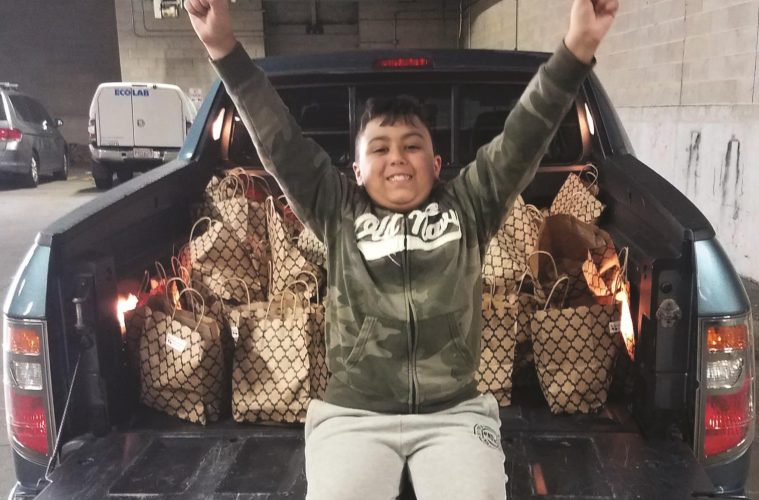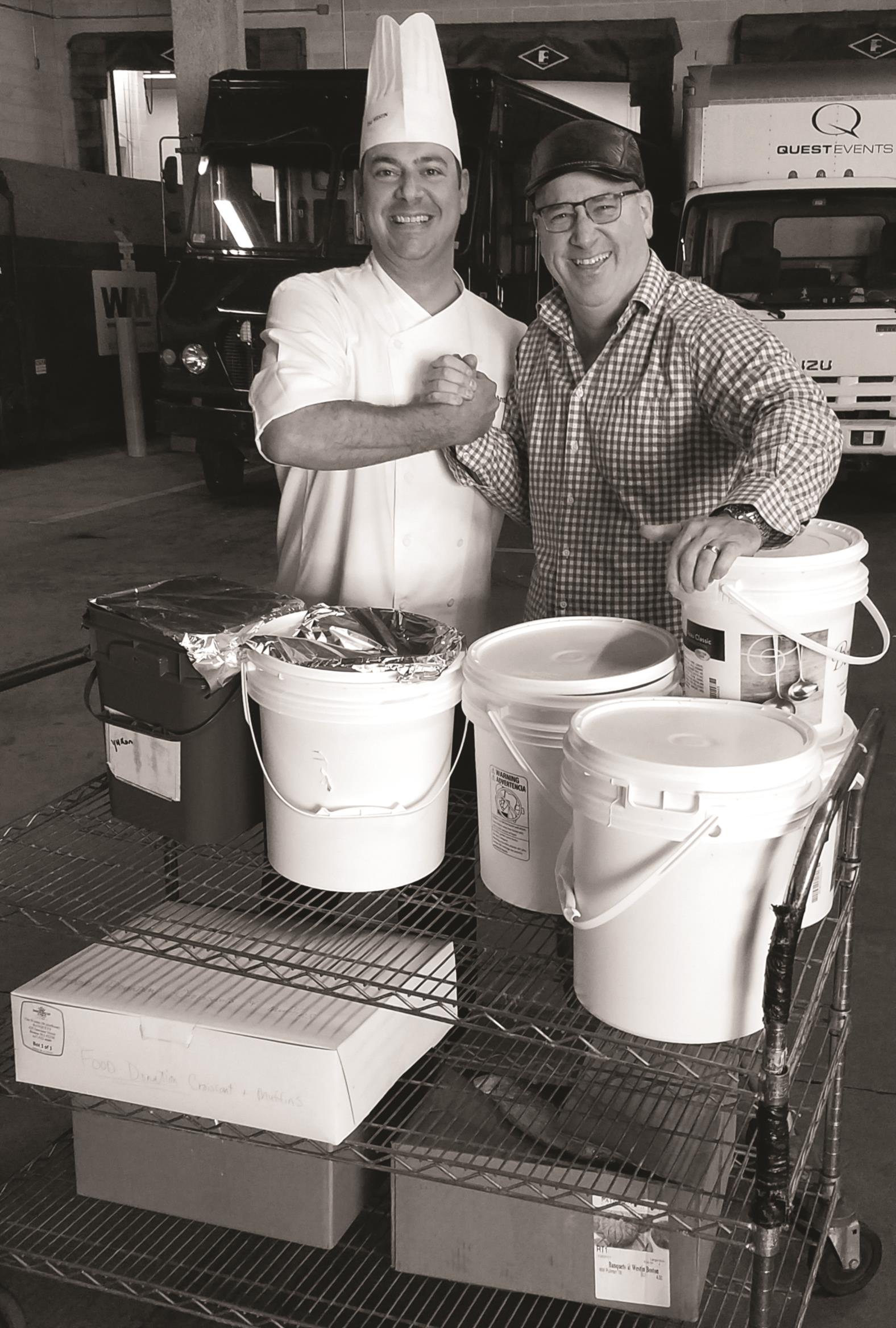 Yet food also has a flip side. Anyone who’s worked in a restaurant, attended a company lunch, or even given a backyard barbecue understands the sting of throwing away leftover food, especially when our neighbors are going hungry.
Enter Rescuing Leftover Cuisine (RLC) Massachusetts, a nonprofit organization that enlists volunteers to recover excess fresh and prepared food from local businesses and bring it to nearby non-profits to feed those in need.
Yet food also has a flip side. Anyone who’s worked in a restaurant, attended a company lunch, or even given a backyard barbecue understands the sting of throwing away leftover food, especially when our neighbors are going hungry.
Enter Rescuing Leftover Cuisine (RLC) Massachusetts, a nonprofit organization that enlists volunteers to recover excess fresh and prepared food from local businesses and bring it to nearby non-profits to feed those in need.
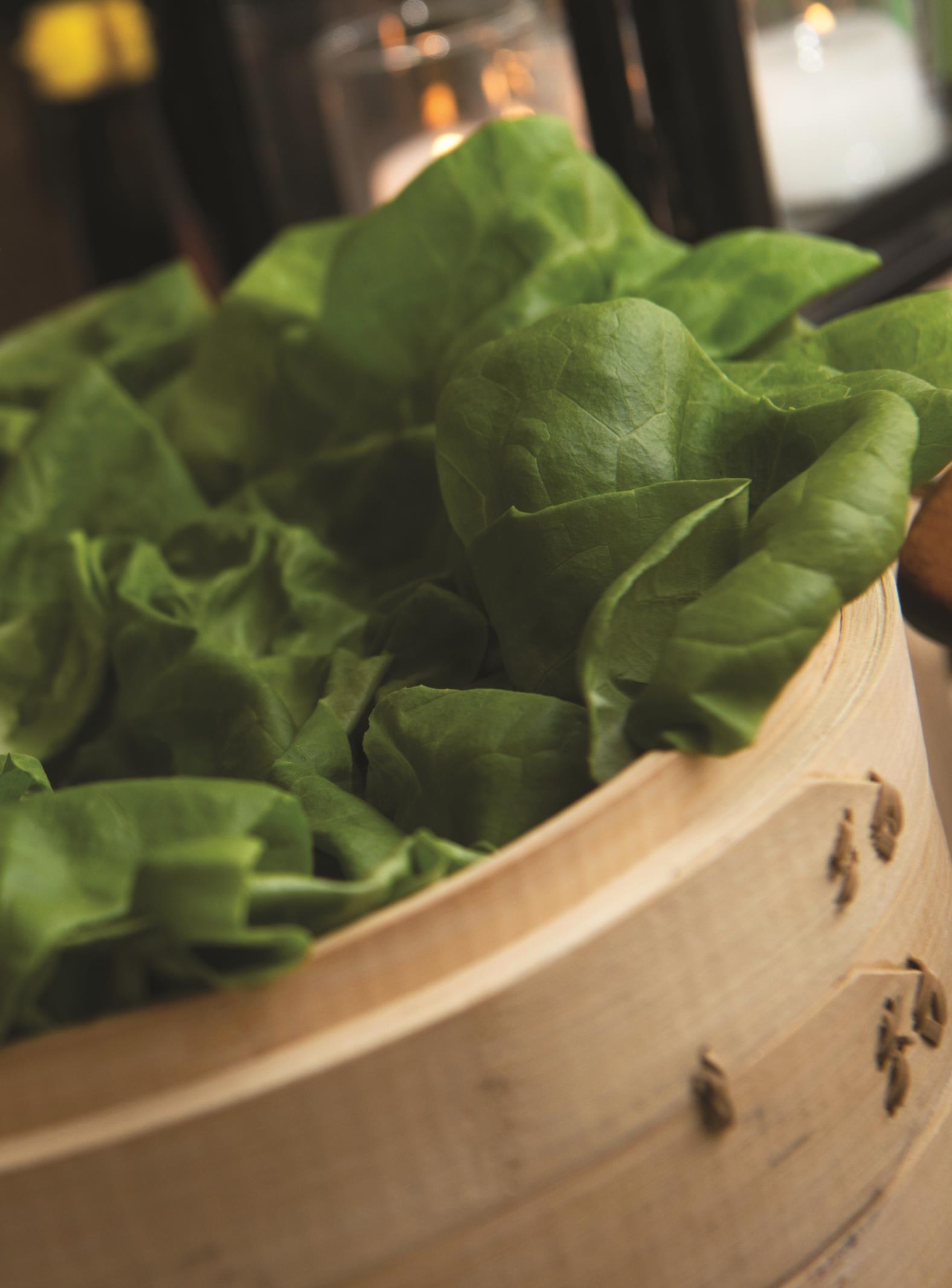 “We rescue food every day from reputable restaurants, cafés, businesses, and cafeterias,” says Dana Siles, the New England Coordinator for RLC. (Food rescue is also totally legal, something that many potential donors and recipients don’t realize).
RLC was founded in New York City in 2013 and has since expanded into 12 states, including the Massachusetts branch which started in 2015, Siles says.
Here in Massachusetts, local organizations like the Westin, Marriott, Pret A Manger, Museum of Science, and Boston Opera House donate their leftover food for rescue. RLC volunteers pick up the food, either at regularly scheduled times or sporadically, and transport it to recipients like homeless shelters, food pantries, and other community organizations.
“We rescue food every day from reputable restaurants, cafés, businesses, and cafeterias,” says Dana Siles, the New England Coordinator for RLC. (Food rescue is also totally legal, something that many potential donors and recipients don’t realize).
RLC was founded in New York City in 2013 and has since expanded into 12 states, including the Massachusetts branch which started in 2015, Siles says.
Here in Massachusetts, local organizations like the Westin, Marriott, Pret A Manger, Museum of Science, and Boston Opera House donate their leftover food for rescue. RLC volunteers pick up the food, either at regularly scheduled times or sporadically, and transport it to recipients like homeless shelters, food pantries, and other community organizations.
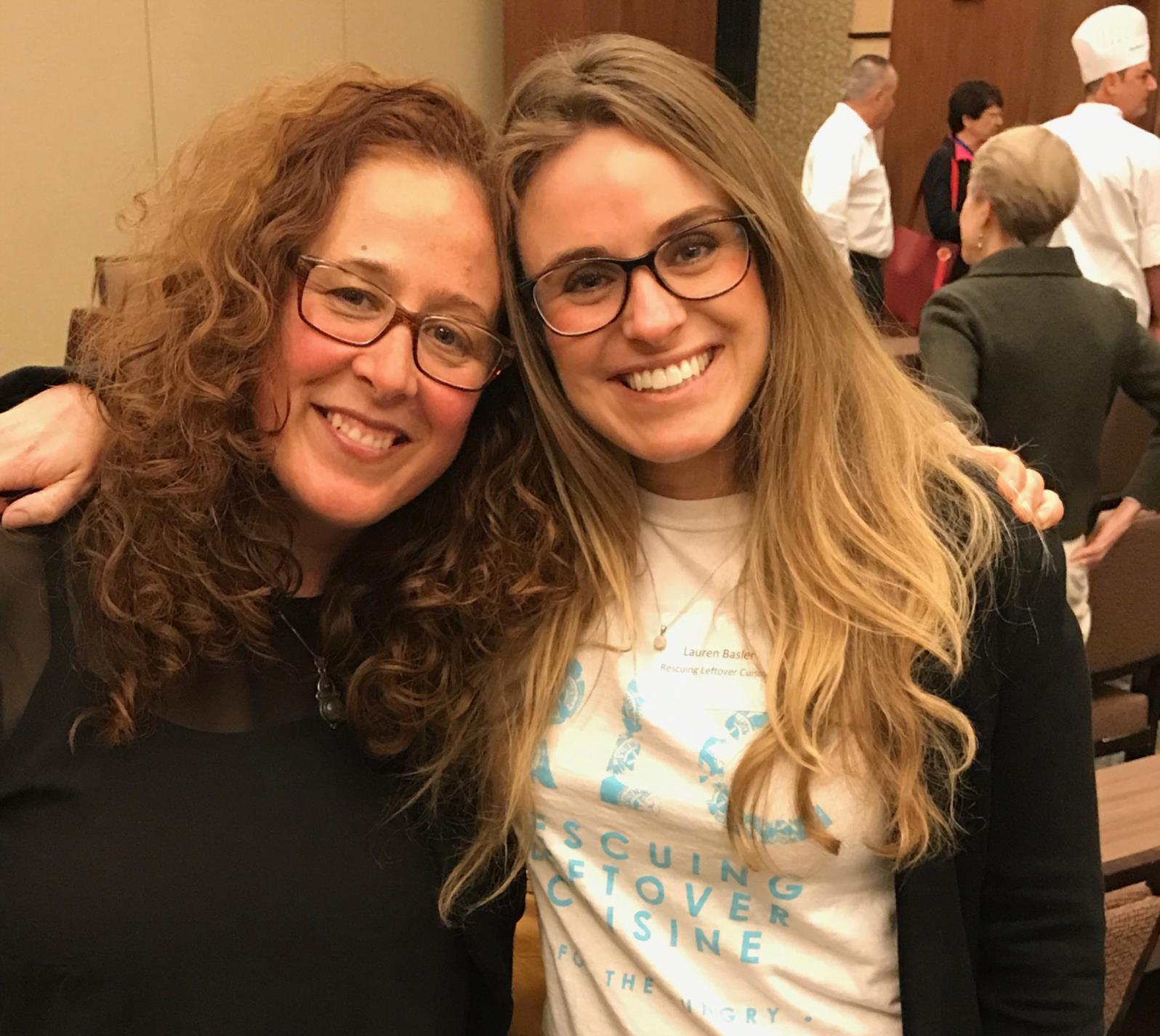 Among the donors is Eataly Boston, which started doing donation pickups with RLC in April. RLC picks up food from Eataly weekly on Saturday mornings. It also does “emergency” pickups when there’s a lot of unexpected prepared leftover food that needs to be distributed as soon as possible, such as after a special event. Rachel Orchard, marketing associate at Eataly Boston, says the pickup service has been “a huge help for us because we had been having trouble finding a partner that could come on the weekends.”
“As a result of this partnership we’ve been able to divert a huge amount of our bread that would’ve otherwise been composted on Saturdays—sometimes 100 to 120 loaves in one pick up—which they instead distribute to several shelters,” she says.
Among the donors is Eataly Boston, which started doing donation pickups with RLC in April. RLC picks up food from Eataly weekly on Saturday mornings. It also does “emergency” pickups when there’s a lot of unexpected prepared leftover food that needs to be distributed as soon as possible, such as after a special event. Rachel Orchard, marketing associate at Eataly Boston, says the pickup service has been “a huge help for us because we had been having trouble finding a partner that could come on the weekends.”
“As a result of this partnership we’ve been able to divert a huge amount of our bread that would’ve otherwise been composted on Saturdays—sometimes 100 to 120 loaves in one pick up—which they instead distribute to several shelters,” she says.
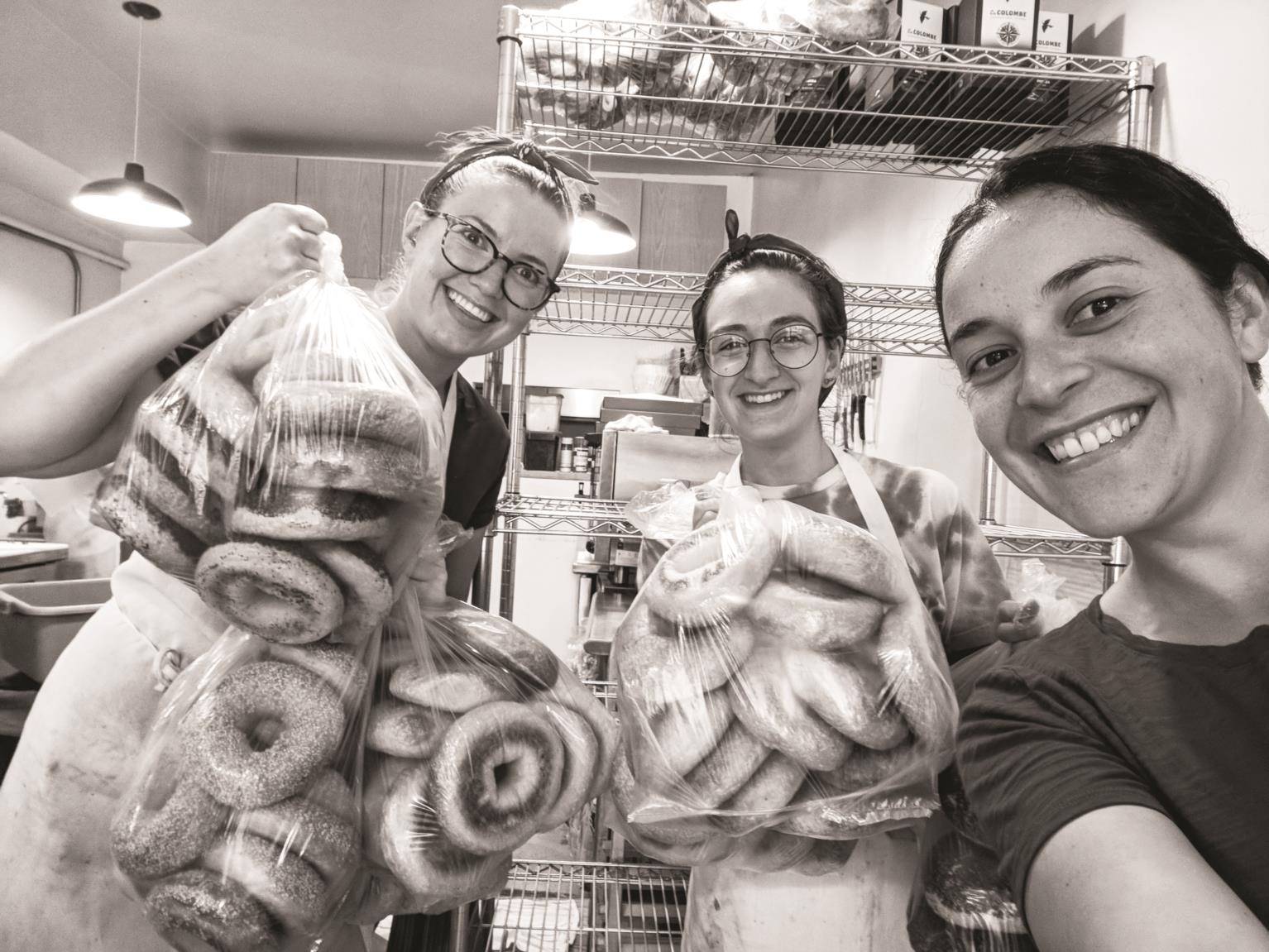 When it comes to the dual problem of food need and food waste, the numbers are staggering. Siles points to statistics from the Greater Boston Food Bank showing that in addition to the homeless population, one in ten Eastern Massachusetts residents—many of them children and the elderly—are at risk for hunger, including working and middle-class individuals and families. Sixty-one percent have had to choose between food and utilities.
“More and more people are relying on surplus prepared food donation to make ends meet,” Siles says.
On the flip side, $160 billion worth of food is wasted annually in the United States, according to the Department of Agriculture. RLC of Massachusetts is doing its best to take a chunk out of that statistic. In 2017, RLC rescued 40,000 pounds of food in Massachusetts, accounting for more than 30,000 meals, Siles says.
Receiving rescued food also helps recipients stretch their budgets, allowing them to serve excellent food to their guests and allocate more resources into other services. That’s the case for Rosie’s Place in Boston, which serves more than 100,000 hot meals per year.
“We try to provide the best food for our guests that we can, both in our dining room, where we prepare three meals per day, and also in our food pantry,” says Michele Chausse, director of communications at Rosie’s Place. “We think our guests deserve to have healthy, good-quality food. To have prepared food that’s really good quality is really a nice treat for our guests.” Siles says the key to success is dedicated volunteers. Budget and staffing restrictions make it impossible for food recipients to travel around picking up rescued food from donors, but volunteers can bridge that gap.
When it comes to the dual problem of food need and food waste, the numbers are staggering. Siles points to statistics from the Greater Boston Food Bank showing that in addition to the homeless population, one in ten Eastern Massachusetts residents—many of them children and the elderly—are at risk for hunger, including working and middle-class individuals and families. Sixty-one percent have had to choose between food and utilities.
“More and more people are relying on surplus prepared food donation to make ends meet,” Siles says.
On the flip side, $160 billion worth of food is wasted annually in the United States, according to the Department of Agriculture. RLC of Massachusetts is doing its best to take a chunk out of that statistic. In 2017, RLC rescued 40,000 pounds of food in Massachusetts, accounting for more than 30,000 meals, Siles says.
Receiving rescued food also helps recipients stretch their budgets, allowing them to serve excellent food to their guests and allocate more resources into other services. That’s the case for Rosie’s Place in Boston, which serves more than 100,000 hot meals per year.
“We try to provide the best food for our guests that we can, both in our dining room, where we prepare three meals per day, and also in our food pantry,” says Michele Chausse, director of communications at Rosie’s Place. “We think our guests deserve to have healthy, good-quality food. To have prepared food that’s really good quality is really a nice treat for our guests.” Siles says the key to success is dedicated volunteers. Budget and staffing restrictions make it impossible for food recipients to travel around picking up rescued food from donors, but volunteers can bridge that gap.
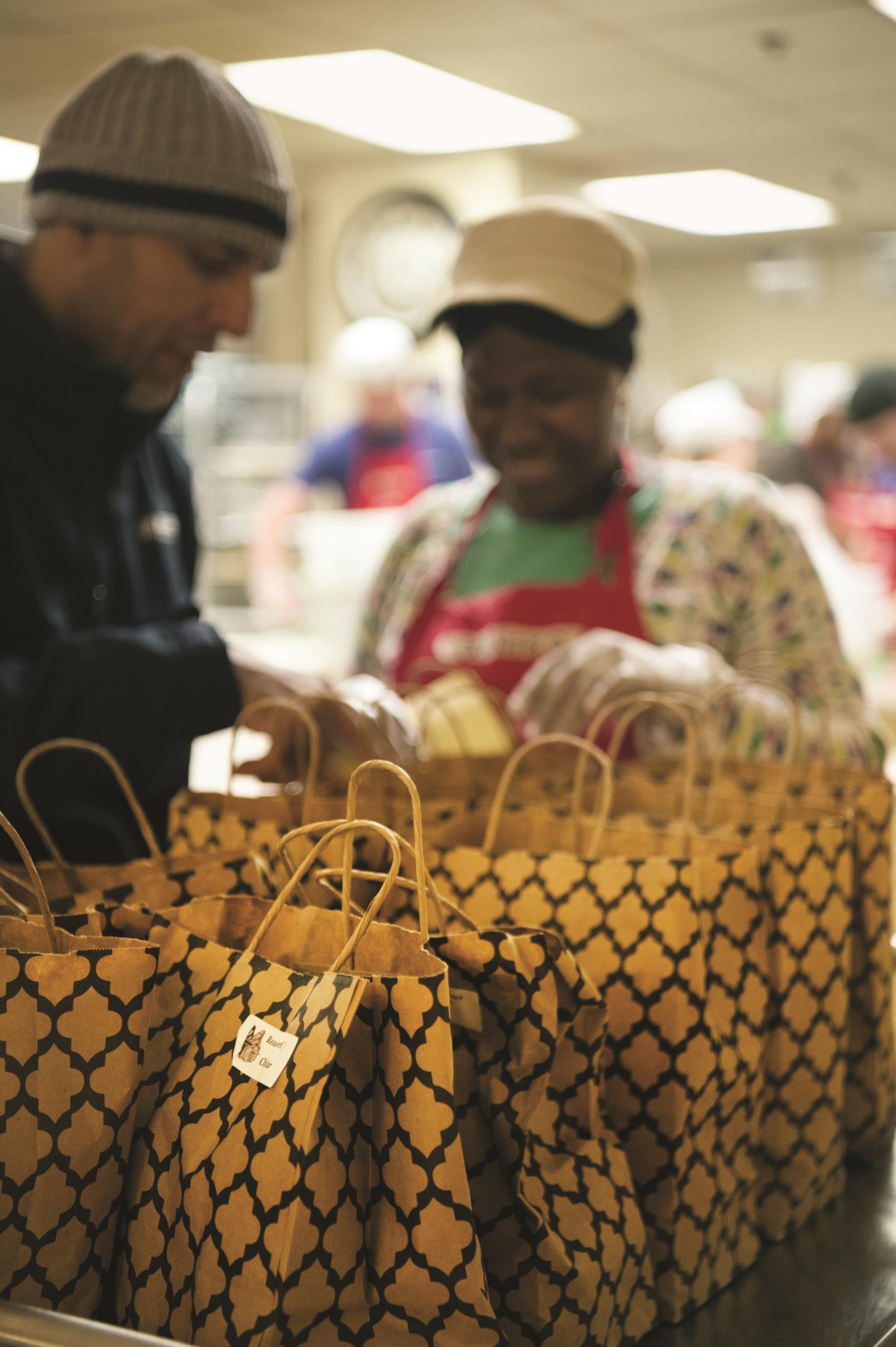 “The drop off for this is fantastic. It’s so helpful. It makes it so that using donated food is not only possible, it’s also a benefit,” says Melissa Cording, director of development at Bridge Over Troubled Waters.
Plus, it’s easy and satisfying to volunteer: Siles says that an average event rescues 50 pounds of food, feeds 40 people, and takes about 45 minutes.
Siles says she’d like RLC to expand to the North Shore, but first, it has to build up a stable of reliable volunteers and recipients who are ready and willing to participate.
“Once we have enough in any given area—in this case the North Shore—we can then begin recruiting food donor partners,” she says. “It takes time to build in each area, so we ask for the patience, understanding, and help of our volunteers and recipients to make it happen in your area.”
Cording says RLC not only provides delicious food, but also does on a regular, thrice weekly schedule.
“The drop off for this is fantastic. It’s so helpful. It makes it so that using donated food is not only possible, it’s also a benefit,” says Melissa Cording, director of development at Bridge Over Troubled Waters.
Plus, it’s easy and satisfying to volunteer: Siles says that an average event rescues 50 pounds of food, feeds 40 people, and takes about 45 minutes.
Siles says she’d like RLC to expand to the North Shore, but first, it has to build up a stable of reliable volunteers and recipients who are ready and willing to participate.
“Once we have enough in any given area—in this case the North Shore—we can then begin recruiting food donor partners,” she says. “It takes time to build in each area, so we ask for the patience, understanding, and help of our volunteers and recipients to make it happen in your area.”
Cording says RLC not only provides delicious food, but also does on a regular, thrice weekly schedule.
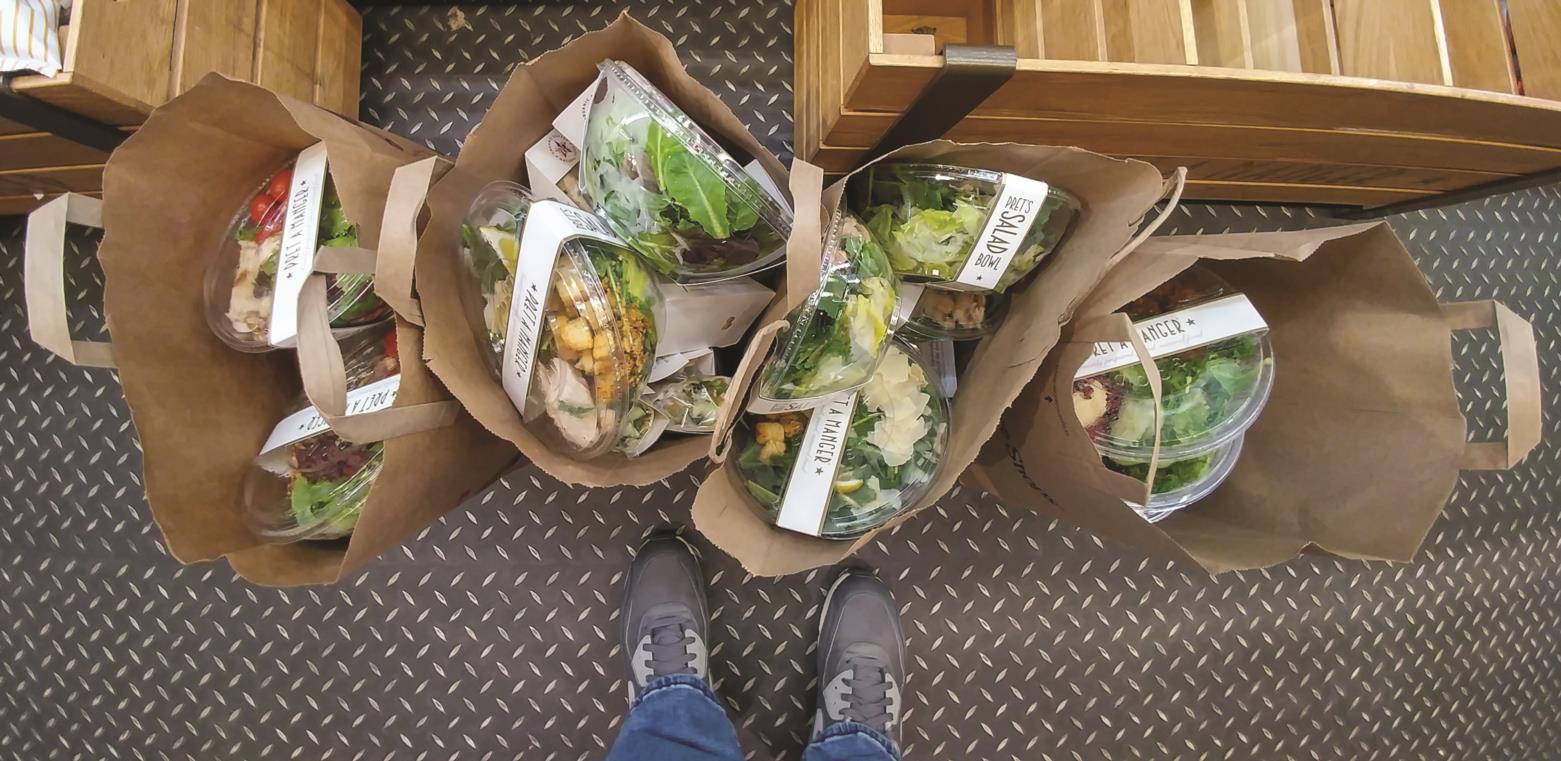 “When you’re working with donated food, you’re not sure what you’re going to get, or when you’re going to get it, or if you’re going to get it,” she says. With RLC, donations are regular and reliable.
They’re also reliably delicious and varied, which is great for guests like the ones at Bridge Over Troubled Waters, some of whom are getting to try new foods that they’d never been exposed to before.
“It’s fun to have different types of food,” says Jovanie. “I had never had Indian before.”
rescuingleftovercuisine.org/massachusetts
“When you’re working with donated food, you’re not sure what you’re going to get, or when you’re going to get it, or if you’re going to get it,” she says. With RLC, donations are regular and reliable.
They’re also reliably delicious and varied, which is great for guests like the ones at Bridge Over Troubled Waters, some of whom are getting to try new foods that they’d never been exposed to before.
“It’s fun to have different types of food,” says Jovanie. “I had never had Indian before.”
rescuingleftovercuisine.org/massachusetts
